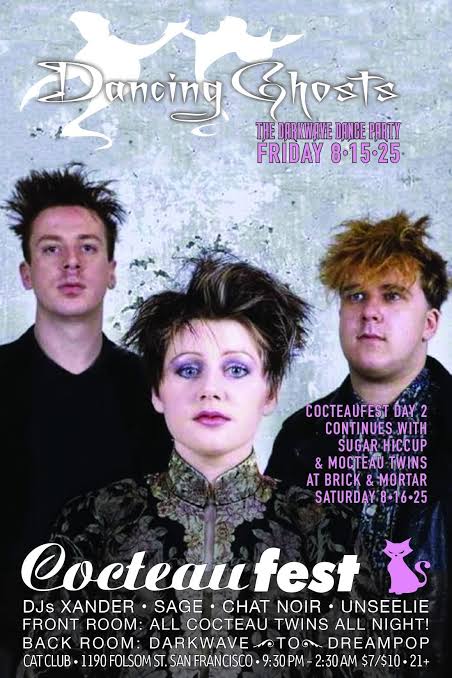“Global Cocteau Twins Fans Club Declares Elizabeth Fraser the Eternal Voice of Dream Pop: A Worldwide Celebration Set to Honor Her Timeless Influence, Angelic Vocals, and Unmatched Legacy in Modern Music — Fans Unite Across Continents to Pay Tribute to the Woman Who Redefined Emotion Through Sound.”
In a stunning moment of musical reverence, the Global Cocteau Twins Fans Club has officially declared Elizabeth Fraser as the Eternal Voice of Dream Pop. The announcement came during a live-streamed event that drew fans from every corner of the world — from Glasgow to Tokyo, Lagos to Los Angeles — all united by a shared love for the ethereal soundscapes and haunting beauty that Fraser brought to life through her music.
For decades, Elizabeth Fraser’s voice has been described as something beyond human — a language of emotion, purity, and mystery. To her fans, she is not merely a singer; she is a feeling, a presence that drifts through the spaces of memory and imagination. Her vocals, layered with delicate reverb and surreal phrasing, became the very essence of the Cocteau Twins — a sound that redefined the boundaries of what pop and alternative music could be.
At the heart of the fans club’s declaration was a simple message: “Elizabeth Fraser changed the way the world listens.” The group’s founder, Marianne Duffy, who started the online community in 2001, said during the ceremony, “Her voice is not just sound; it’s light, air, and emotion combined. When she sings, you don’t just listen — you transcend.”
The event featured rare footage of Cocteau Twins performances, fan-made art, and testimonials from musicians inspired by Fraser’s work. Among those who contributed messages were artists from diverse genres: dream pop creators like Beach House, post-rock innovators like Sigur Rós, and even modern pop figures who credited Fraser’s emotional expressiveness as a guiding influence. Each testimonial seemed to reaffirm one truth — Elizabeth Fraser is timeless.
Fraser’s career began modestly in the early 1980s when she joined Robin Guthrie and Will Heggie to form the Cocteau Twins in Grangemouth, Scotland. What emerged from their collaborations was something unprecedented: a fusion of shimmering guitar textures, lush ambient tones, and Fraser’s unmistakable vocal layering. Her lyrics often defied direct interpretation — they were not meant to be understood through language, but through feeling. This approach gave birth to a new form of expression, one that allowed the listener to experience emotion without the filter of words.
One fan from Japan, Hana Sato, expressed her admiration during the event: “When I first heard Heaven or Las Vegas, I didn’t understand the words, but I cried. Elizabeth taught me that music doesn’t need translation. It speaks directly to the soul.”
Throughout the night, social media platforms flooded with tributes, art, and emotional reflections. The hashtag #EternalVoiceElizabethFraser began trending within hours, and fans posted videos of themselves covering songs like Lorelei, Carolyn’s Fingers, and Cherry-Coloured Funk. Many spoke about how Fraser’s voice had been their companion through heartbreak, solitude, and self-discovery.
What made Fraser so remarkable wasn’t just her sound, but her mystery. She was never one to chase fame or spotlight; instead, she let her art exist in a realm untouched by ego. Even after the Cocteau Twins disbanded in 1997, her rare appearances — such as collaborations with Massive Attack on “Teardrop” — reminded the world that her talent remained celestial and unique.
In the fans club’s statement, they also announced plans to launch an annual Elizabeth Fraser Day, which will feature virtual concerts, fan exhibits, and scholarship funds for young female vocalists inspired by her legacy. “We want to celebrate not just her music, but what she represents — vulnerability, strength, and the beauty of emotional truth,” Duffy explained.
The celebration also included interviews with sound engineers and producers who had worked with Fraser over the years. Many spoke of her meticulousness in the studio — the way she treated her voice as an instrument, layering tones and textures with the precision of a painter blending light and shadow. Robin Guthrie, her longtime collaborator, described it best in a rare archival clip played during the event: “Elizabeth doesn’t sing to you; she sings through you. Her voice finds its way into the part of your mind that dreams.”
By the end of the event, thousands of fans had joined an online chorus, each contributing a single line of a collective message: “Thank you, Elizabeth, for giving us wings through sound.” The message was later projected in luminous script onto landmarks in Edinburgh and London, symbolizing the worldwide appreciation for a voice that continues to echo across generations.
Critics and cultural historians have long debated how to define the Cocteau Twins’ influence, but few deny their central role in shaping the dream pop genre. Their sound — delicate, immersive, and deeply emotional — became the foundation upon which artists like Björk, The Sundays, and Lush would build their own identities. Yet at the center of it all was Fraser, the ethereal storyteller whose voice blurred the line between human and divine.
As the livestream closed, a digital mosaic of fan portraits appeared on screen, forming an image of Fraser’s silhouette. The image shimmered with light, as if alive — a fitting tribute to the artist who taught the world that music could feel like a dream one never wants to wake from.
Even now, years after her most active period, Elizabeth Fraser’s presence remains magnetic. Her influence is whispered in the vocal stylings of countless artists and felt in the hearts of millions who found peace, wonder, or healing through her songs. To the world, she is more than a singer. To the Cocteau Twins fans club, she is a legend eternal.
As one fan’s comment perfectly summarized the night:
> “There are voices that sing, and then there is Elizabeth Fraser — the voice that breathes life into silence.”
And perhaps that is her truest legacy: not just a sound, but a feeling that will never fade.
